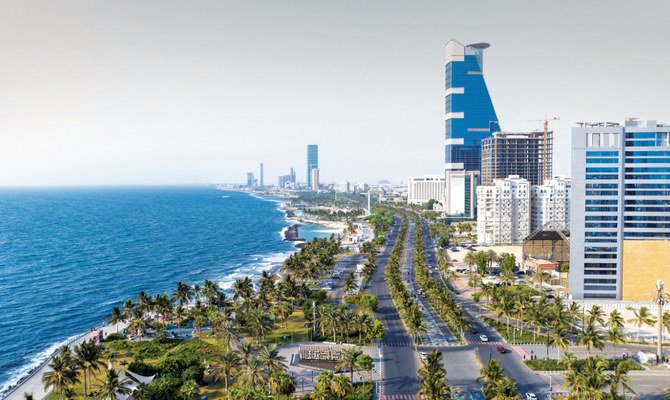Neom, one of the standout exhibits on the Davos Promenade, aims to position itself not just as a luxury living and tourism destination but also as an innovation hub.
In a bid to rival the United Arab Emirates (UAE) as the Middle East’s premier tech hub, Saudi Arabia showcased its ambitious Vision 2030 strategy at this year’s World Economic Forum in Davos.
The Saudi delegation made a significant impact on the city’s main street, unveiling plans for Neom, a groundbreaking urban development, and promoting the AlUla project, aimed at transforming a heritage city into a global tourist destination.
Neom, one of the standout exhibits on the Davos Promenade, aims to position itself not just as a luxury living and tourism destination but also as an innovation hub. The heightened presence underscores Saudi Arabia’s commitment to economic diversification, a key pillar of Vision 2030.
A spokesperson for Neom expressed the intent to educate the investment community on the development and signal that it is “open for business.” Mohammed al-Jadaan, the country’s finance minister, highlighted the significant reduction of oil’s contribution to GDP from 70% to 30-35%, emphasizing the diversification into sectors such as tourism, technology, and logistics.
The push to boost Saudi Arabia’s global profile includes hosting a special World Economic Forum in Riyadh in April. Al-Jadaan emphasized strategic relationships with the U.S. and China, aiming to bridge global gaps.
Neom is part of Crown Prince Mohammed bin Salman’s Vision 2030 plan, which includes several “giga” projects focusing on infrastructure investments and attracting fintech talent. Ian Bremmer, President of Eurasia Group, commended MBS for driving entrepreneurship, diversifying the economy, and combating corruption. Bremmer believes Saudi Arabia has moved past controversies, such as the Khashoggi incident.
With the Saudi economy surpassing $1 trillion, the UAE’s tech hub dominance faces a growing challenge. While the UAE has a head start with substantial investments in Advanced Research Technology Centers, Saudi Arabia is aggressively investing in its tech ambitions, particularly in AI.
The King Abdullah University of Science and Technology (KAUST) is at the forefront of Saudi Arabia’s AI initiatives. Aligned with the goal to be a global AI leader by 2030, KAUST is fostering innovation through strategic partnerships, a National AI Strategy supporting startups, and Riyadh’s International Center for AI Research and Ethics (ICAIRE).
Experts note that MBS’s investments in megacities are secondary to the core mission of attracting talent for AI innovation. Saudi Arabia’s resources, regulatory flexibility, and a young, educated population position it uniquely for success in the global AI race.
Vera Futorjanski, CEO of Veritas Ventures, highlights Saudi Arabia’s differentiator as its ample resources, regulatory flexibility, and a young, educated population hungry for innovation. Jack Hidary, CEO of SandboxAQ, sees the transformational impact of AI beyond the mobile phone, emphasizing the potential for AI-driven personalized education and training.
Saudi Arabia and the UAE are looking to countries like Singapore and Israel, which lack natural resources but have excelled in supporting startups and driving technological innovation. Jack Hidary points out that these nations relied on their smart, innovative populations, a model Saudi Arabia and the UAE are keen to emulate.
As Saudi Arabia and the UAE actively seek to foster innovation, drive technology, and attract global talent, the race to become the leading tech hub in the Middle East is heating up. The landscape is evolving, and Saudi Arabia’s Vision 2030 is not just a plan on paper but a tangible force reshaping the region’s economic and technological future.
